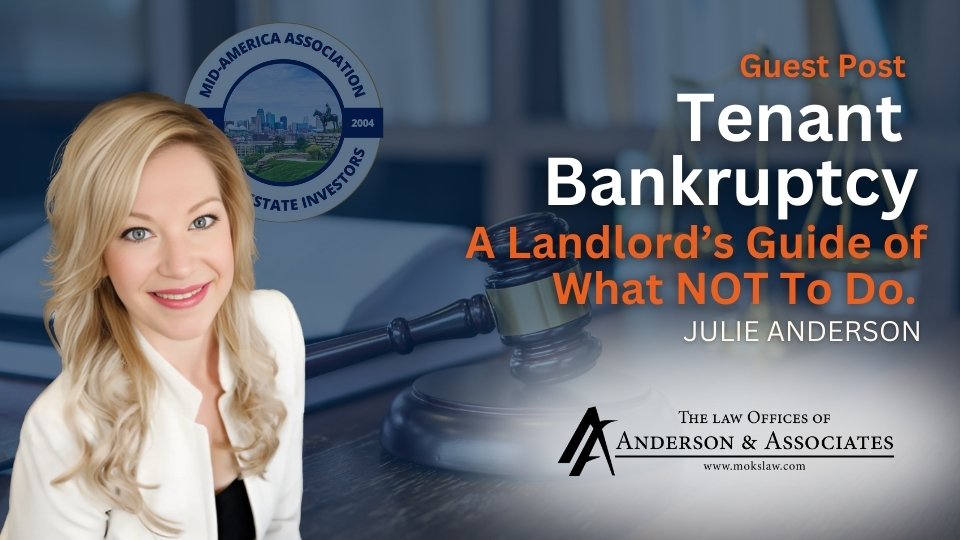
For landlords, learning that a tenant has filed for bankruptcy can be unsettling. It raises critical questions about rent collection, eviction rights, and the future of the lease agreement. However, failing to handle the situation quickly and properly can expose you to legal risks, fines, or even lawsuits for violating the automatic stay imposed by the bankruptcy court.
WHAT LANDLORDS SHOULD DO WHEN A TENANT FILES FOR BANKRUPTCY
Understanding what you can and cannot do when a tenant files for bankruptcy is essential for minimizing losses and protecting your legal rights. Herein, we outline the key steps landlords should take—and critical mistakes to avoid—when dealing with a tenant bankruptcy.
Take the Bankruptcy Notice Seriously
The moment a tenant files for bankruptcy, an automatic stay (11 U.S.C. § 362) is triggered. This means all collection efforts must stop immediately, including eviction proceedings for unpaid rent.
- Review the bankruptcy notice carefully.
- Determine the type of bankruptcy the tenant filed (Chapter 7 or Chapter 13).
- Assess whether the tenant intends to assume or reject the lease.
Verify Whether the Tenant Is Paying Rent
A tenant in bankruptcy must still pay ongoing rent if they continue living on the property.
- Chapter 7 (Liquidation): The tenant has 60 days to assume or reject the lease. If assumed, they must pay rent moving forward.
- Chapter 13 (Repayment Plan): The tenant may continue renting while incorporating past-due payments into a court-approved plan.
File a Proof of Claim for Unpaid Rent (if Available)
If a tenant owes back rent, landlords should file a Proof of Claim with the bankruptcy court if the court provides you with this opportunity. This ensures you are recognized as a creditor and may recover some of the unpaid rent from available estate funds.
Seek Relief from the Automatic Stay (If Necessary)
If the tenant stops paying rent, damages the property, or violates lease terms, landlords must ask the bankruptcy court to lift the automatic stay to proceed with eviction.
Work with an attorney to draft a Motion for Relief from Stay, demonstrating the tenant’s default. Courts are likely to grant this request if:
- The tenant fails to pay rent after filing for bankruptcy.
- The lease expired before the bankruptcy was filed.
- The property is at risk due to tenant negligence.
- The tenant is violating the lease for reasons other than non-payment
WHAT LANDLORDS SHOULD NOT DO WHEN A TENANT FILES FOR BANKRUPTCY
Do NOT Attempt to Evict Without Court Approval
Landlords cannot proceed with an eviction for unpaid rent without the bankruptcy court’s approval. Violating the automatic stay can result in fines, damages, or legal penalties. Landlords cannot use self help to remove a tenant including changing locks, shutting off utilities, or removing the tenant’s belongings without a court order.
Do NOT Demand Payment for Past-Due Rent
Once a bankruptcy is filed, landlords must stop all collection attempts, even informal ones. Directly requesting payment from the tenant can be a legal violation. Landlords are prohibited from:
- Sending payment reminders or past-due notices.
- Calling or emailing the tenant about rent.
- Filing lawsuits to recover unpaid amounts without court permission.
Instead, file a Proof of Claim with the bankruptcy court to seek recovery through legal channels.
Do NOT Ignore Lease Termination Notices from the Tenant
In Chapter 7 bankruptcy, a tenant may reject the lease, meaning they choose to terminate it as part of the bankruptcy process. If this happens, the tenant must vacate, but landlords can still file a claim for unpaid rent. Landlords should avoid:
- Trying to force the tenant to stay.
- Negotiating a separate arrangement outside of bankruptcy court.
Navigating tenant bankruptcy can be challenging, but landlords have rights. If you are facing this situation, Anderson & Associates is here to help. Please reach out to us at julie@mokslaw.com or 816-931-2207 in Missouri and 913-262-2207 in Kansas.

Attorney Julie Anderson
Learn more on Julie's Website at MoKsLaw.com








